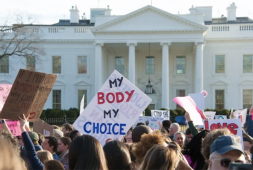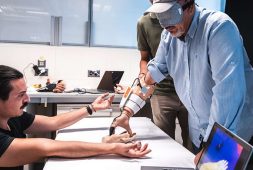
In the bustling halls of a hospital nestled in the heart of Cordoba, Argentina, a heartwarming initiative unfolds, offering newborns a touch of nature’s embrace amidst circumstances often fraught with adversity.
Imagine this: tiny infants, snug within the confines of sterile incubators, separated from their parents who, due to various life challenges such as work commitments, substance abuse, imprisonment, injury, or even death, are unable to provide the nurturing presence they desperately need. Enter a team of compassionate volunteers, affectionately known as “huggers,” who selflessly dedicate themselves to cradling these precious bundles for two-hour shifts, ensuring they receive the warmth and connection vital for their development.
No formal scientific studies need be referenced to affirm what these volunteers inherently understand: the profound impact of human touch on a newborn’s neurological growth, weight gain, adaptation to the world, and quality of sleep. It’s a truth as instinctive as the bond between parent and child, palpable in the soft sighs, relaxed grips, and gradual shift from crimson to rosy hues observed in the babies’ demeanor and complexion.
At the Provincial Maternity Hospital of Córdoba, this remarkable endeavor thrives, thanks to the dedication of 50 volunteer huggers who generously offer their time to cradle prematurely born infants or those bereft of maternal care. Though predominantly comprised of 49 women, one lone man bravely stands among them, a testament to the inclusive spirit driving this noble cause. Yet, astonishingly, the demand for such compassionate service far exceeds the current capacity, with a staggering 200 applicants eagerly awaiting their opportunity to make a difference in these vulnerable lives.
“I want [the babies] to be certain that, since they were born, they’ve been loved and accepted. It’s amazing how [valiant] they are, they have such a desire to live,” said Irma Castro. She is a retired public teacher and volunteer hugger.
Nancy Sánchez Zanón, who leads the Maternity Neonatology Department, shared with El Pais that out of the 5,200 births annually in their hospital, approximately 1,500 newborns require a period of care in the Neonatal Intensive Care Unit (NICU). Interestingly, around 15% of these infants benefit significantly from being held for various reasons.
Collaborating with Zanón, Ana María Rognone mentions their replication of a comparable program at a hospital in Buenos Aires in collaboration with UNICEF. However, the genesis of this approach stems from an infant cuddling initiative in Canada, primarily aimed at babies born to mothers struggling with heroin addiction.
The rationale behind the practice, as elucidated by the experts, is that when infants are embraced, they cease expending their own energy—a reflexive response crucial for survival when circumstances necessitate being separated from caregivers. Prolonged periods in this state can lead to developmental setbacks, but the simple act of being held in warm human arms, feeling the rhythmic beat of a heart, can reverse this process. Babies typically exhibit signs of relief, easing into relaxation, and enabling their bodies to resume growth and development.
“[This contact] promotes neurodevelopment, protection, care, and growth,” Zanón elaborated. “[A child] is less stressed, because they’re in someone’s arms… they can regulate their temperature more easily… are less prone to sleep apnea, and gain weight faster compared to if they weren’t linked to anyone.”
El Pais reports that a significant portion of the volunteers are mothers themselves, acknowledging that the affection they offer to the hospital’s infants through cuddling is distinct. While immensely gratifying and enriching, it differs from the bond they share with their own children.
This endeavor aligns with the hospital’s broader emphasis on human-centric neonatal care, serving as a poignant testament to the potency of love and compassion amidst an environment saturated with technology and unfamiliar faces.



